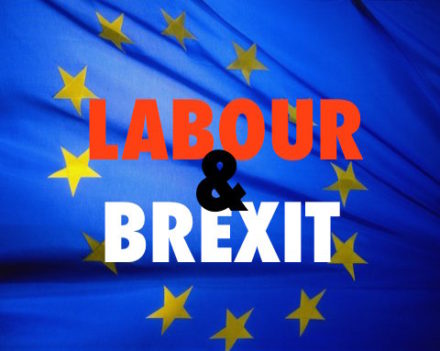
In summer 1816, the UK was experiencing a period of rapid change and unrest. Across much of industrial Northern England, Yorkshire and the Midlands, skilled workers faced technological change which threatened their job, wage levels and way of life. A few years later similar threats emerged in the more agricultural regions such as East Anglia.
Meanwhile, levels of migration reached unprecedented levels as people moved in search of work and greater prosperity for themselves and their families and by 1851 only 50 per cent of the population of Bradford had been born there.
Across large parts of England working class communities felt threatened and powerless in the face of unprecedented social and economic change and lacked the national political leadership to help them to understand, adapt and respond to the changes facing them. The result was initially the machine-breaking of the Luddite movement and later, from 1830 the Swing Riots.
There are clearly stark similarities between the rapid domestic industrialisation that took place 200 years ago and the even faster globalisation of the current time. In both cases the response to powerlessness in the face of change has been to attack the manifestations of that change be they spinning machines, threshing machines or so recently the European Union.
The European Union is almost entirely a manifestation rather than a driver of globalisation – a way of nation states uniting and co-operating to manage global forces that would be beyond their control if acting alone. The decision to leave the EU therefore lessens rather than enhances the ability of communities and individuals across the UK to respond to and control the changes facing them.
The Labour Party in the referendum failed to make this case. Consequently those communities that felt that the globalised world was passing them by, or worse undermining their employment, access to housing and economic security and even their way of live voted against that most tangible symbol of the globalised world – the European Union.
The response to challenges faced by the working classes in the early 19th century, was the emergence of organisations, movements and individuals that provided vision and leadership, mainly from what we would now recognise as a progressive, left perspective.
The newly emergent and rapidly growing trade union movement gave voice to working class communities and the collective strength to to secure better wages and pay and conditions and thus the means to support their families.
The Chartists advocated democratic reform to enhance accountability, to enfranchise the working classes and to ensure that communities had a democratic route to be heard and to advocate social change.
Finally, the co-operative movement provided the opportunity for communities to pool their resources and to become develop a distinctive, political, social and economic voice of their own.
In all the above examples, the solution was empowering people to speak for themselves and to find their own ways of managing the challenges that faced them.
The challenge now facing those of us on the left of politics is to provide that same leadership again – albeit in a very different context. The EU referendum result represents a huge failure on the part of the labour movement to speak to and for the communities we seek to serve, but more importantly a failure to help them to speak for theirselves.
The solutions we seek will not be the same as those discovered in the 19th century. They will surely require elements of trade unionism and co-operation as well as an active and empowering state, but restoring confidence in the ability of local, national and international governance to work in the interests of the many will require radical thinking rather than a re-fresh ing and re-branding of the old ways of working. It will also require us to maintain a constant conversation about the challenges and opportunities of a globalised world with the electorate rather than just when pushed to do so.
Further tests face us over the coming months and years as we seek to map out a post-Brexit Britain, re-engage with an increasingly sceptical population in what have previously been traditionally Labour areas, and in holding to account the Government as we enter one of the most uncertain times in recent history.
Leadership is required restore faith in those who in recent years have been tempted to kick out against the tangible symbols of globalisation, much as the machine-breakers did 200 years ago.
Our values will remain constant but the structures, methods of communicating and organising , and the the policies will have be radically renewed but failure to provide such leadership may result in the political machine, or least the left, bring broken for the foreseeable future.




More from LabourList
‘Labour is being badly misled on housing’
Reeves bets on patience over populism
‘Energy efficiency changes must work for older private renters’